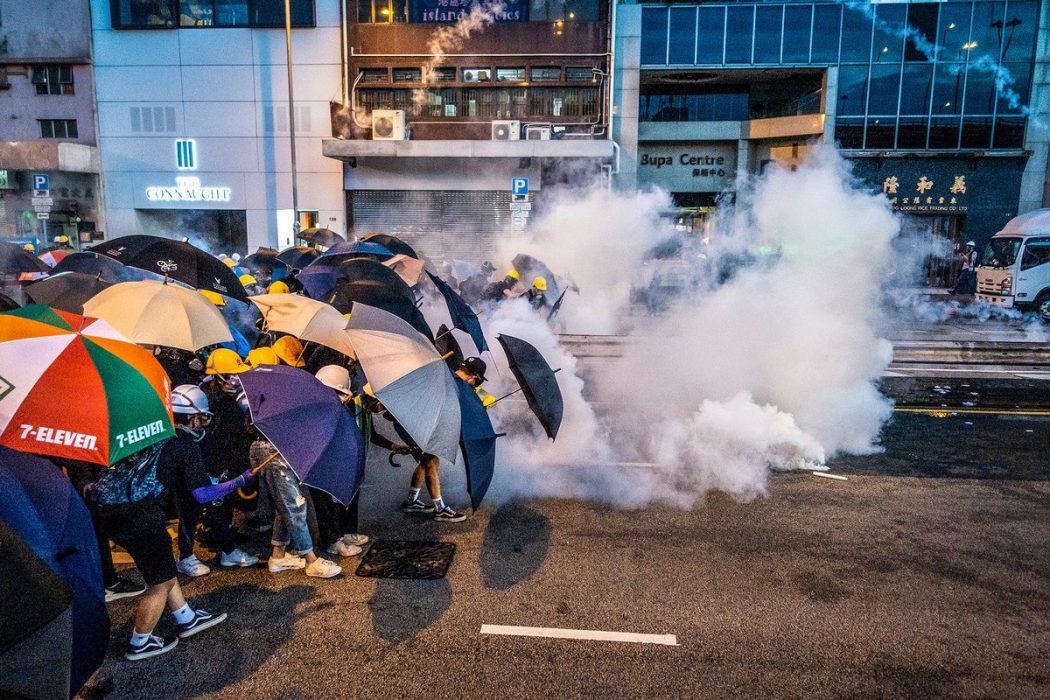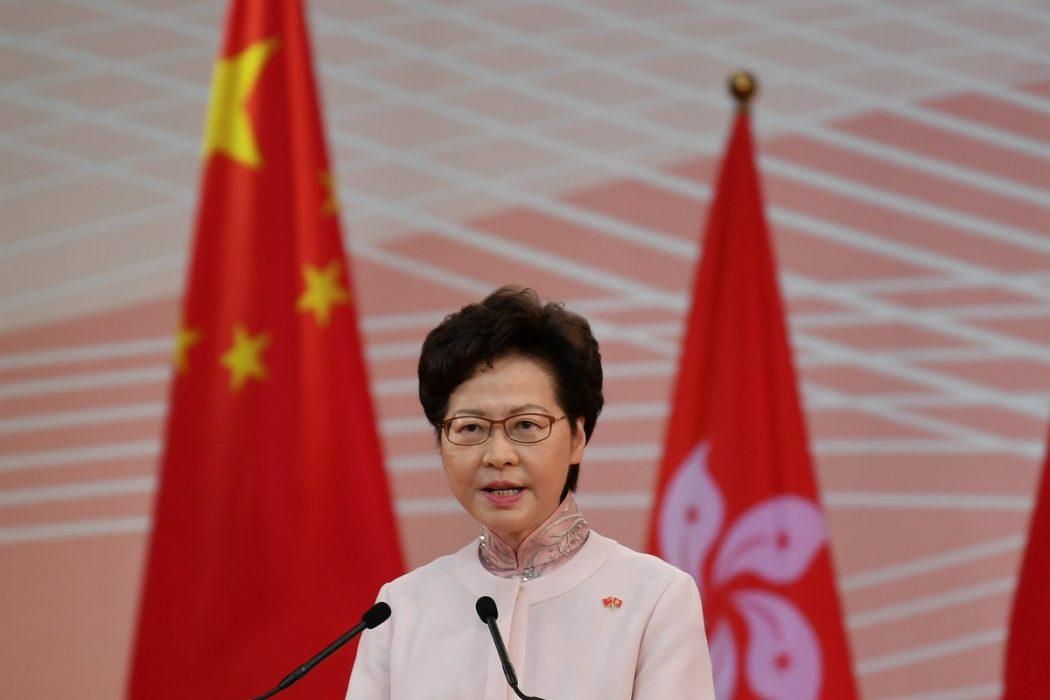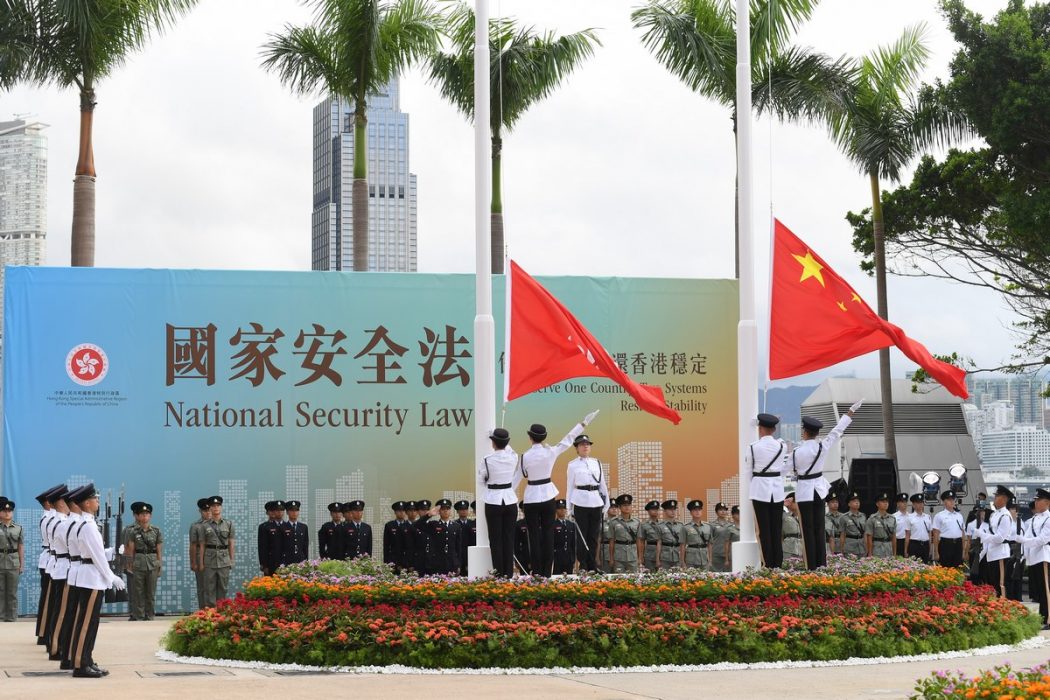The outgoing senior EU diplomat in Hong Kong has told HKFP that the “draconian” national security law was not a solution to the city’s political crisis, as she observed growing fear and self-censorship among Hongkongers.
“I never thought I would see such a different Hong Kong on my departure,” said Carmen Cano, who took office in September 2016 as head of the European Union (EU) Office to Hong Kong and Macao after working in Beijing for almost a decade.

Last year’s citywide protests, triggered in June by a now-axed extradition bill, marked the most significant political development in Hong Kong in Cano’s eyes. She said she was impressed by how Hong Kong people came together from various backgrounds to defend their rights, before the peaceful demonstrations descended into violence.
“It was about keeping their freedoms and liberties, which are in Hongkongers’ DNA,” she said.
Another unexpected turn of events was Beijing’s decision to bypass the local legislature to enact “catch-all” security legislation a year later, which criminalises secession, subversion, terrorist acts and collusion with foreign forces. The law not only damaged Hong Kong’s international image, she said, it also failed to resolve issues in an “extremely polarised society.”
“The national security law is not solving problems in Hong Kong society, what we see is fear… the political crisis which erupted last June could not be solved with just security measures. You need a dialogue, you need to bring hope to the young people.”

The departing EU envoy said she has witnessed increasing self-censorship in the city, and it was “troubling” to see police storm into the offices of pro-democracy newspaper Apple Daily last week. She also raised concerns over foreign journalists who faced months-long delays in renewing their work visas.
Cano’s comments ran counter to Chief Executive Carrie Lam, who said she had not seen widespread fears among Hongkongers a week after the controversial legislation came into force on June 30. “This national security law is relatively mild as far as national security laws are concerned,” Lam said.
Her administration also disagreed with remarks in the European Commission’s annual report on Hong Kong published last month, which described the year 2019 as “exceptionally challenging” for the city.

The envoy said the EU had never questioned the legitimacy of implementing a national security law in Hong Kong. The bloc, however, has been vocal about its “grave concerns” over the way the legislation was enacted.
In a statement issued on July 1, the EU said the law would risk “seriously undermining” Hong Kong’s high degree of autonomy and might have a “detrimental effect” on its judicial independence and rule of law.
On July 24 it announced a coordinated response package to be carried out at the level of the 27 member states. This included considering the implications of the legislation for asylum and migration, limiting exports of technology to Hong Kong which could be used in cyber surveillance and interception of communications and reviewing the effects of the law on the operation of extradition agreements.

Some critics have said the EU’s response was too mild compared to the UK and US, but Cano believed the strength of the bloc’s reaction lies in the consensus among 27 sovereign states: “What all member states agreed was that the goalposts had moved. The rules of the game had been changed in the middle of the match. We need to adjust to a new scenario.”
Despite the uncertainties under the broadly-worded legislation, Cano said the operations of the local EU office would remain unchanged. It would continue to engage with local civil society groups and keep its doors open to anyone who wanted to share their political viewpoint, including pro-democracy activists and pro-establishment figures.
“All political opinions have been respected and we have listened to all of them. We will continue to do the same,” said Cano.

Reflecting on her four-year term before her return to Spain, Cano said she had witnessed “history being made” as major changes took place in the city and around the world. She said she would always remember how the city made her and her family feel at home.
“I really admire the resilience and courage of the Hong Kong people to protect what they have. This is something I will take with me… I will always keep Hong Kong in my mind and heart,” she said.
